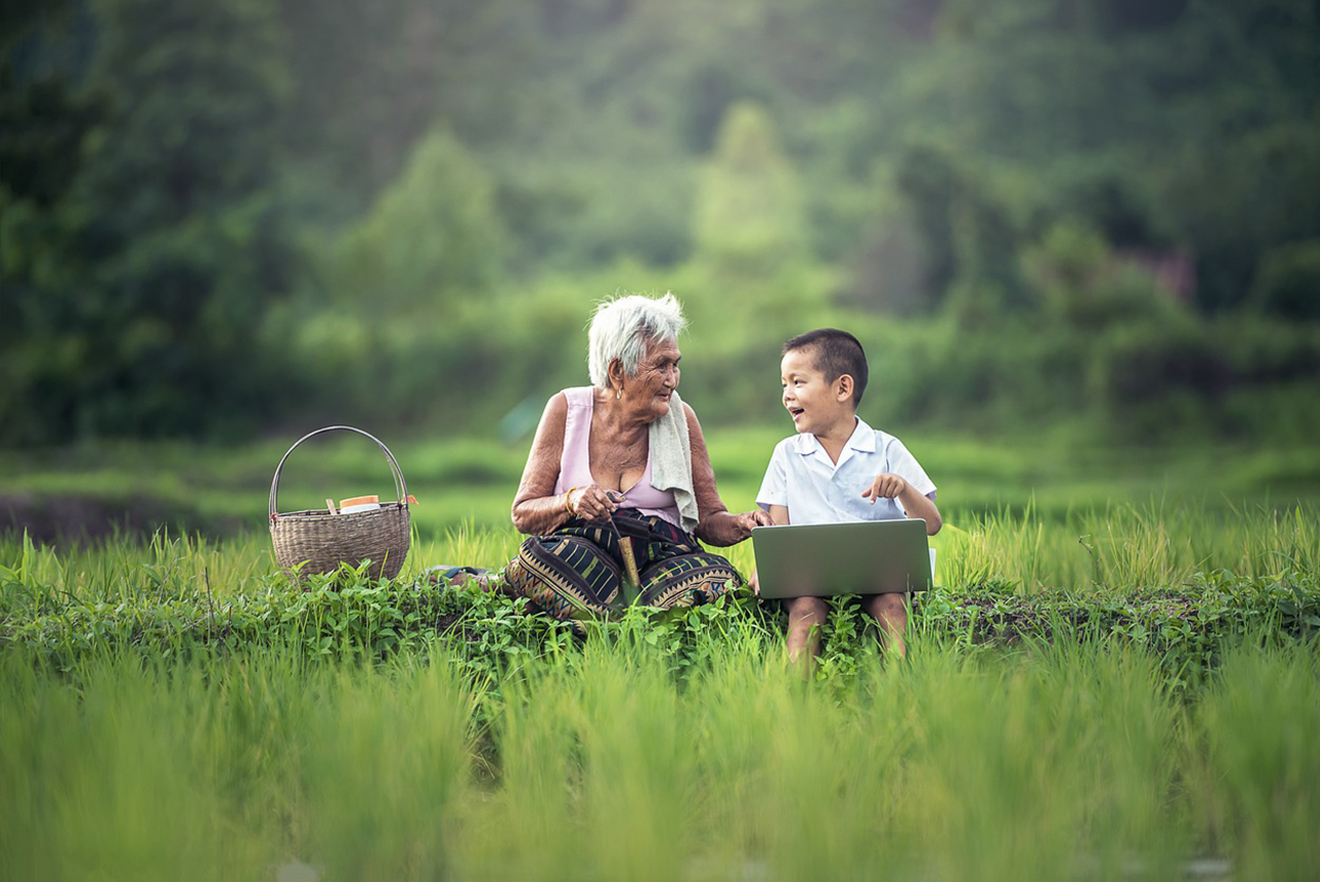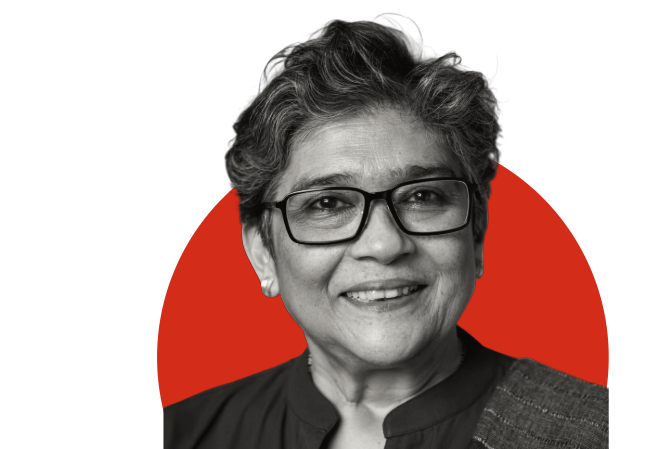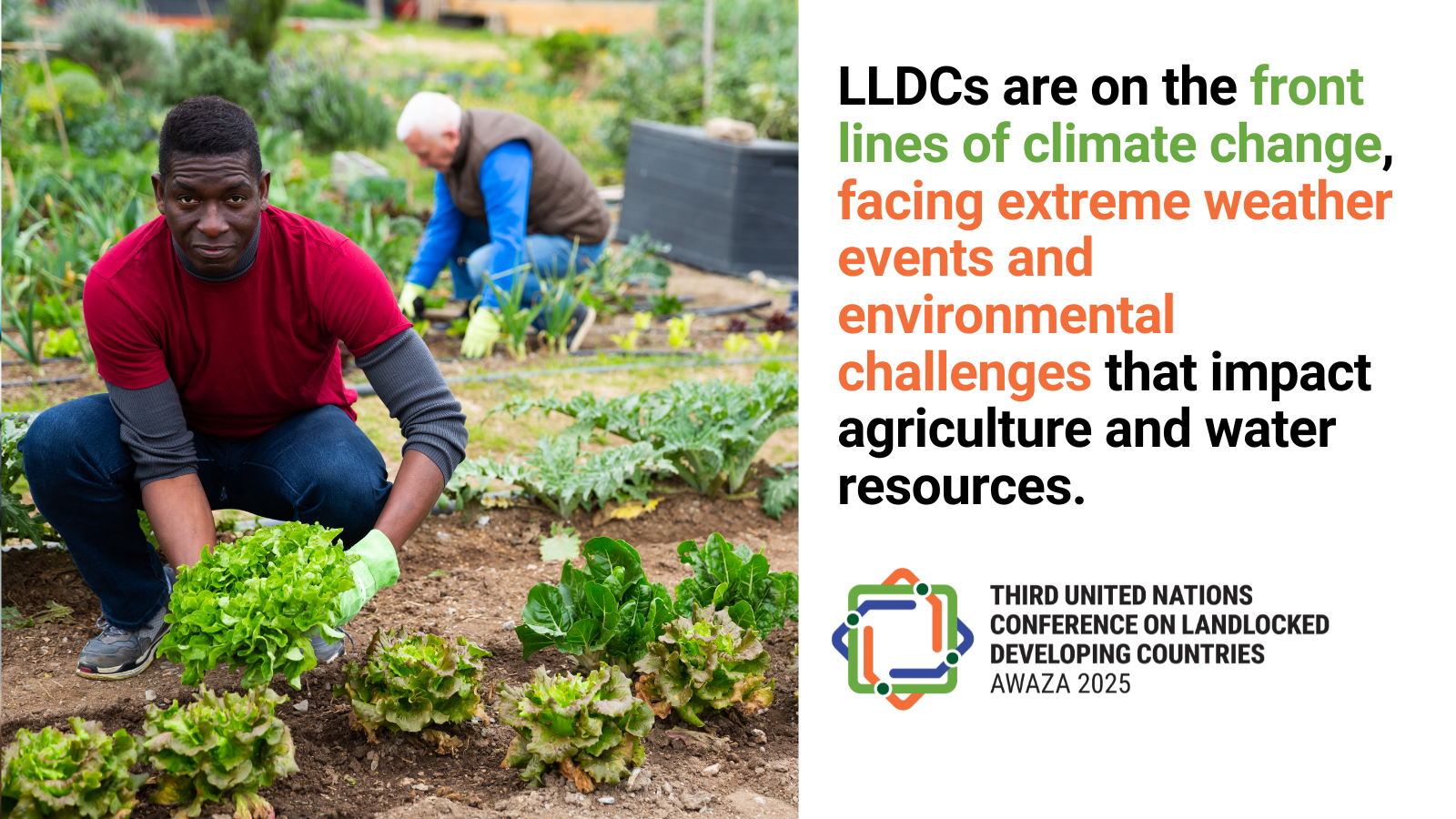Driving Progress through partnerships
Landlocked Developing Countries (LLDCs), lacking direct sea access, face hurdles in trade, connectivity, and development. Without coastal ports, they rely on transit nations, causing higher trade costs and delays. Despite challenges, LLDCs host vibrant communities with untapped potential.
The Third UN Conference on LLDCs offers a chance to explore solutions and forge partnerships, addressing challenges and unlocking their full potential for a more equitable and prosperous future.
Latest announcements

LLDC3 Concludes with Endorsement of Awaza Programme of Action and Adoption of Historic Awaza Political Declaration
The Third United Nations Conference on Landlocked Developing Countries (LLDC3) concluded today in Awaza, Turkmenistan, with the adoption of the Awaza Political Declaration, and the formal endorsement of the Awaza Programme of Action (2024–2034)—a landmark framework to accelerate sustainable development and resilience for the world’s 32 landlocked nations.
Under the theme “Driving Progress Through Partnerships,” the four-day conference convened Heads of State, Senior UN officials, development partners, and private sector leaders to address the unique challenges faced by LLDCs—including high trade costs, infrastructure gaps, and climate vulnerabilities—while charting a bold path forward through the Awaza Programme of Action (2024–2034). Read more.
- Download Draft Awaza Political Declaration
- Download Awaza Programme of Action

LLDC3 App is Now Available for Download!
The LLDC3 Conference App serves as a comprehensive hub for all conference-related information.
Stay informed, stay connected! Click here to download the App.

Unlocking Opportunities: Sustainable Industrialization in LLDCs
Read the latest article of our Think Pieces series written by Gerd Müller, Director General of the United Nations Industrial Development Organization (UNIDO)

Information for Participants is Now Available!
The Information for Participants is now available. It includes details on visa requirements, arrival and local transport in Awaza, health services, climate, voltage, food and catering, and banking and currency.
Please click here to view more.
OHRLLS Side Event at the 2024 ECOSOC Youth Forum
If you missed the OHRLLs Side virtual event "Innovating Forward: Young Entrepreneurs Driving Sustainable Development in LLDCs, held during the ECOSOC YOuth Forum, we got you covered! Watch it on our Youtube channel.
Our forums
Besides the official meetings, the Conference hosts specific forums for all!
Stories from the field

3 ways to power Eswatini's path to energy security and sustainability
Eswatini, a landlocked developing country in southeast Africa, exemplifies the importance of energy security. The country has managed to increase electricity access for its population from 20 percent in 2001 to over 80 percent in 2021, representing one of the biggest advances in energy access in the world. Story by UNDP
Broadening diets and growing opportunities
No one feels the effects of climate change quite like small family farmers and herders. In the past few years, farmer Lkhagva Yondon struggled to be self-sufficient due to the challenges brought on by an extreme climate. Till now. Story by FAO
Improving road conditions and access to markets
Niger is dependent on its road network to connect communities and to support economic activity. But poor road conditions make travel difficult, slow, and dangerous. To improve road safety and increase access to markets, UNOPS provided project management and technical assistance for the rehabilitation of more than 300 kilometres of roads. Story by UNOPS
Awaza Programme of Action for LLDCs 2024–2034
The Awaza Programme of Action (APoA) draws on lessons learned from the Vienna Programme of Action (2014–2024) and seeks to ensure that progress accelerates, especially in such areas as trade facilitation, structural transformation, transport connectivity, technology, climate resilience, and the mobilization of international support. The aim is to align national-level actions, regional integration efforts, and global policy frameworks to place LLDCs on a more dynamic and inclusive path to sustainable development, while safeguarding them against future shocks and disasters.



















